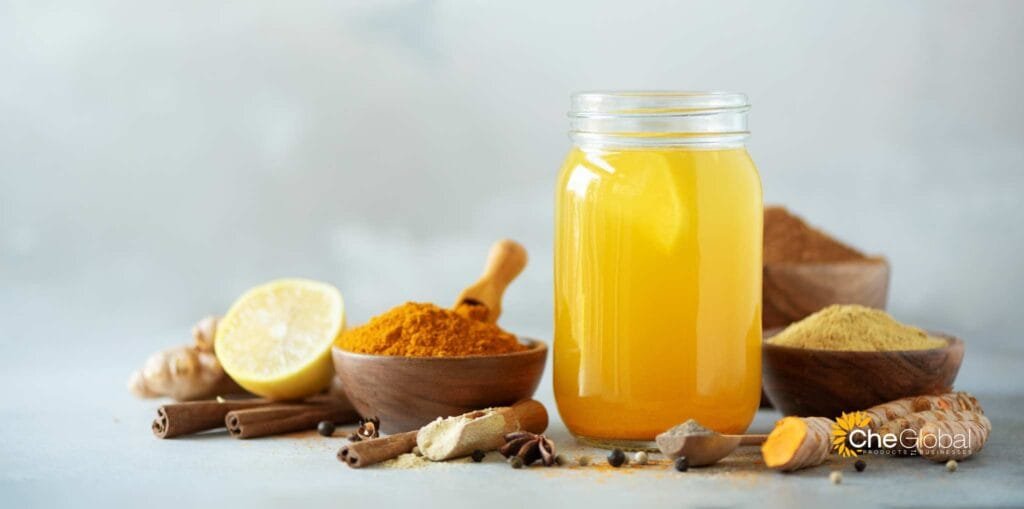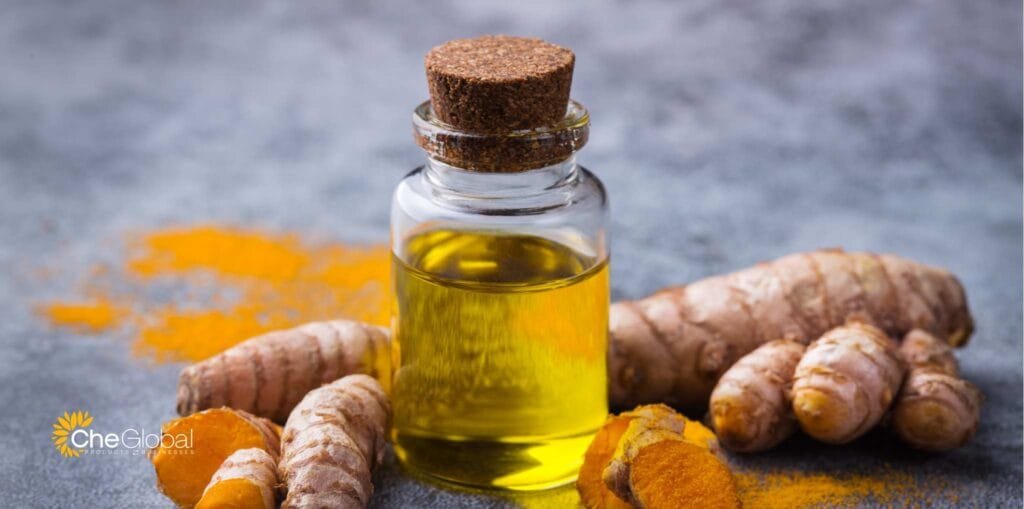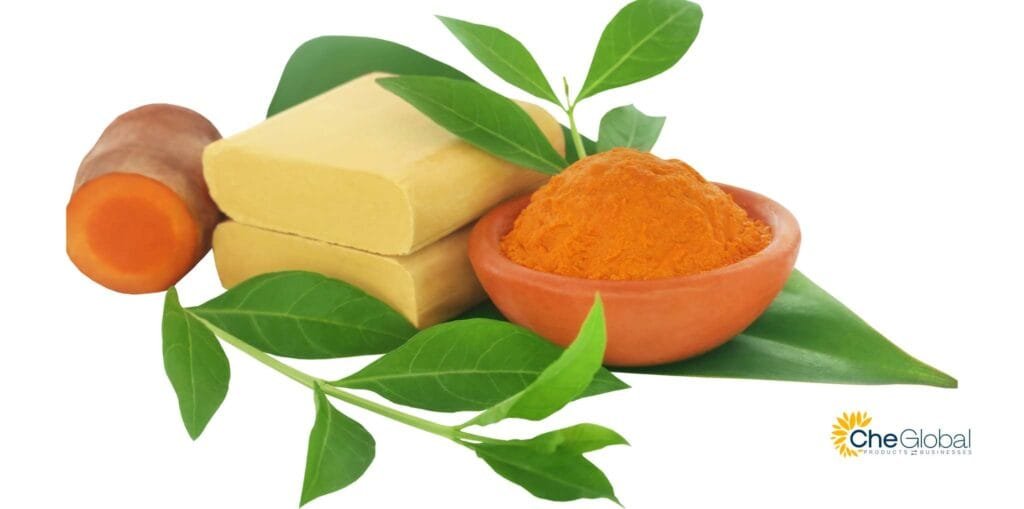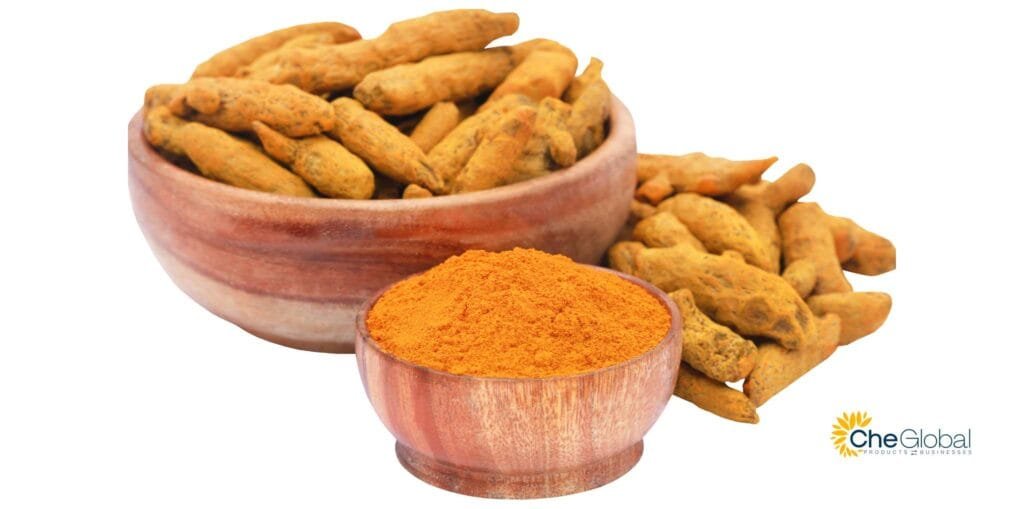Turmeric’s Magic: Unveil the 10 Best Health Benefits
The health benefits of Turmeric, a golden spice that has been used for centuries in traditional medicine, holds a plethora of health benefits that modern science is just beginning to understand. With its active ingredient curcumin, turmeric offers more than just flavor to your meals.
From fighting inflammation to preventing chronic diseases, the 10 Health Benefits of Turmeric and Curcumin cannot be overstated. Whether you prefer your turmeric fresh, as an organic turmeric powder, or in bulk turmeric quantities for regular use, incorporating this spice into your daily diet could be the key to unlocking a healthier you.
Turmeric: A Natural Anti-Inflammatory Powerhouse

The remarkable anti-inflammatory properties of turmeric are primarily attributed to curcumin, its main active ingredient. Chronic inflammation, if left unchecked, plays a significant role in the development of various serious health conditions, including heart disease, cancer, and neurodegenerative diseases.
Curcumin steps in as a natural combatant against these prolonged inflammatory states, offering a level of efficacy on par with pharmaceutical anti-inflammatories but without the adverse side effects. This positions turmeric as a preferable, holistic alternative for those seeking to manage inflammation naturally.
Its inclusion in daily nutrition, whether through supplementation or culinary use, can serve as a proactive measure against the cascade of complications arising from chronic inflammation. As research continues to unfold, the scope of turmeric’s impact on inflammation-related ailments broadens, solidifying its status as a cornerstone in the realm of natural health solutions.
Turmeric’s Role in Heart Health

Turmeric emerges as a potent ally in the fight against heart disease, the number one killer globally. The active compound curcumin plays a pivotal role, enhancing endothelial function, which is crucial for regulating blood pressure and clotting mechanisms. Beyond its direct impact on the endothelium, curcumin’s antioxidant and anti-inflammatory properties act synergistically to protect the cardiovascular system.
It helps in reducing arterial inflammation and preventing oxidative stress on the vascular walls, two major risk factors for heart disease. Additionally, curcumin’s ability to moderate lipid levels, by reducing LDL cholesterol and triglycerides, further underscores its cardiovascular benefits.
This multi-faceted approach not only aids in the prevention of heart disease but also supports overall vascular health, highlighting the indispensable value of turmeric in maintaining heart wellness. Incorporating this golden spice into your diet may thus provide a simple, yet effective strategy to safeguard your heart.
Turmeric as a Cancer-Fighting Agent

The potential of turmeric in the realm of oncology is gaining recognition for its promising effects on cancer prevention and treatment. Curcumin, the powerhouse compound found in turmeric, has shown remarkable capabilities in targeting cancer cells while sparing healthy cells, a trait not commonly observed in conventional treatments.
It interferes with cancer growth and cell cycle progression, induces apoptosis (programmed cell death) in cancerous cells, and inhibits metastasis, offering a multi-pronged approach to cancer combat. Studies highlight its impact on breast, prostate, skin, and colon cancers, suggesting a broad-spectrum anti-cancer effect.
Curcumin’s ability to modulate key signaling pathways involved in cancer development makes it a subject of intense research, aiming to harness its full potential either as a standalone therapy or in synergy with existing treatments. Its natural origin and low toxicity profile further enhance its appeal as a complementary approach in cancer care, underlining the need for more comprehensive studies to fully understand and optimize its cancer-fighting capabilities.
The Protective Effects Against Alzheimer’s Disease

Curcumin, the active component in turmeric, has emerged as a beacon of hope in the battle against Alzheimer’s disease. Its ability to penetrate the blood-brain barrier allows it to directly influence brain health. By leveraging its potent anti-inflammatory and antioxidant qualities, curcumin can combat two of the key drivers of Alzheimer’s: oxidative damage and the buildup of protein tangles known as amyloid plaques.
These plaques are among the primary culprits behind neuronal degradation and the subsequent cognitive decline associated with Alzheimer’s. Research suggests that curcumin not only helps in clearing these plaques but also enhances the body’s immune response to reduce inflammation and promote brain health.
Additionally, its potential to prevent the breakdown of neurons offers a promising avenue for not just slowing down the progression of Alzheimer’s but also for the development of preventive strategies targeting the early stages of this debilitating condition.
Easing Arthritis Symptoms with Turmeric

For those suffering from arthritis, the search for relief often leads to natural remedies, with turmeric at the forefront of effective solutions. Its anti-inflammatory prowess, attributed to the compound curcumin, plays a critical role in diminishing joint pain and stiffness that characterizes this condition.
Studies have shown that incorporating turmeric or curcumin supplements into one’s diet can lead to notable improvements in arthritis symptoms, offering a comparable benefit to that of over-the-counter pain relievers but without the side effects associated with long-term pharmaceutical use. This makes turmeric a highly sought-after option for individuals aiming to manage their arthritis symptoms through natural means.
Additionally, the antioxidant properties of curcumin contribute to reducing the oxidative stress that can exacerbate inflammation in the joints, further supporting joint health and mobility. For arthritis sufferers, the regular inclusion of turmeric in their regimen could potentially enhance their quality of life by alleviating discomfort and increasing daily function.
Curcumin’s Antioxidant Capacity

The remarkable ability of curcumin to act as a potent antioxidant is integral in combating oxidative stress, a critical factor implicated in the onset and progression of numerous diseases. By scavenging free radicals—harmful molecules that can cause extensive cellular damage—curcumin provides a formidable shield against the ravages of oxidative stress.
This protective action is augmented by curcumin’s unique capacity to enhance the body’s own antioxidant defense systems. It stimulates the activity of antioxidant enzymes, effectively boosting the body’s intrinsic ability to fend off oxidative damage.
This dual-action approach not only helps in neutralizing existing free radicals but also in preventing the formation of new ones, thereby offering comprehensive protection at the cellular level. Engaging this powerful antioxidant mechanism, curcumin plays a crucial role in preserving cellular integrity and function, contributing to overall health and disease prevention.
Boosting Brain-Derived Neurotrophic Factor

Curcumin, found abundantly in turmeric, plays a pivotal role in enhancing cognitive functions by boosting levels of Brain-Derived Neurotrophic Factor (BDNF). This vital growth hormone is essential for the health and survival of neurons, influencing their growth, maturation, and maintenance.
It’s well-established that diminished BDNF levels are associated with various neurological disorders, including depression and Alzheimer’s disease. By elevating BDNF levels, curcumin can contribute to reversing or slowing down the degenerative processes in the brain that lead to these conditions.
The increase in BDNF prompted by curcumin not only supports neuroplasticity but also aids in the formation of new brain cells, a critical aspect of learning and memory. This mechanism underscores the therapeutic potential of curcumin in improving brain health and function, highlighting its importance in cognitive resilience and mental well-being.
The Potential to Prevent (and Perhaps Treat) Depression

The promising role of curcumin in mental health, specifically concerning depression, is underlined by compelling research. Studies suggest that curcumin’s impact on depression stems from its ability to modulate several key pathways associated with the disorder. It enhances the brain’s neurotransmitter levels, including serotonin and dopamine, which play a vital role in mood regulation.
The modulation of these neurotransmitters by curcumin offers a natural alternative or complement to traditional antidepressants, with the added benefit of fewer side effects. Moreover, its influence on brain chemistry goes beyond neurotransmitter balance. By increasing Brain-Derived Neurotrophic Factor (BDNF), curcumin addresses one of the critical deficits observed in depressive conditions.
This growth hormone is crucial for maintaining brain health, and its augmentation could counteract the brain’s structural and functional changes linked to depression. These multifaceted actions make curcumin a potent agent in not just managing but potentially reversing the debilitating effects of depression, marking a significant stride in the quest for holistic mental health interventions.
Turmeric’s Benefits for Skin Health

Harnessing the power of turmeric for skin health leverages its natural anti-inflammatory and antimicrobial qualities, making it an excellent remedy for common skin issues. The antioxidant properties of curcumin, turmeric’s star compound, play a critical role in protecting the skin from free radical damage which can lead to premature aging.
Its anti-inflammatory action is particularly beneficial for reducing the redness and irritation associated with acne and eczema, while the antimicrobial effects help to fight bacteria and prevent infections.
Furthermore, curcumin’s potential to inhibit the growth of psoriasis-inducing cells offers hope to those struggling with this challenging condition. Additionally, turmeric can enhance skin brightness, providing a luminous complexion naturally. Its ability to diminish the visibility of dark circles under the eyes contributes to a more refreshed and youthful appearance.
The therapeutic applications of turmeric for the skin extend beyond temporary relief, promoting overall skin health and resilience. By integrating turmeric into your skincare routine, through direct application or dietary inclusion, you can tap into its myriad benefits for a healthier, more radiant skin.
Turmeric’s Role in Longevity

The connection between turmeric and longevity stretches beyond its vivid color and earthy flavor, delving into its compound-rich nature that guards against various ailments. The spice’s prowess in mitigating chronic inflammation and oxidative stress – two significant contributors to aging and age-related diseases – positions it as a pivotal ingredient in the quest for a longer, healthier life.
By bolstering heart health, offering protective measures against neurodegenerative conditions like Alzheimer’s, and showcasing potential in cancer prevention, turmeric encapsulates a holistic approach to aging gracefully. Moreover, its ability to enhance cognitive functions and maintain mental health adds another layer to its longevity-promoting attributes.
As we navigate through life’s journey, incorporating turmeric into our diet could play a crucial role in enhancing our golden years, making them not just longer but significantly richer in quality and wellness. This golden spice, therefore, not only spices up our meals but also our lifespan, with each pinch adding a dash of vitality and longevity.
Contact us to buy Export Quality Turmeric
FAQs of Turmeric


